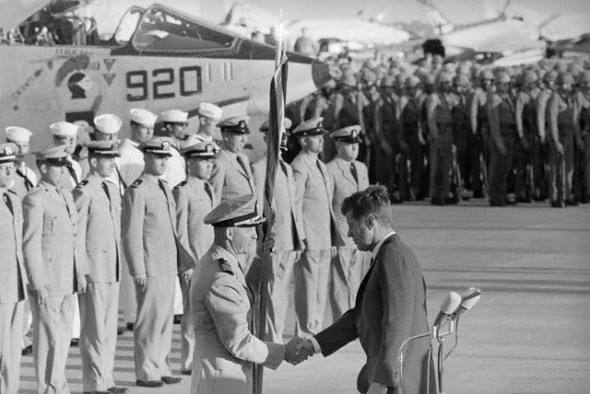-
Ruth Greenspan Bell, Bloomberg News
Global Warming Experts Should Think More About the Cold War
January 2, 2013 By Wilson Center Staff
The original version of this article, by Ruth Greenspan Bell, appeared on Bloomberg News.
Every year the United Nations convenes diplomats from more than 190 nations to negotiate a climate change treaty, and in many years negotiators go home with little more than the promise of another annual meeting.
After the failure of the 18th such event earlier this month in Doha, diplomats and organizers should focus less on the UN exercise than on combing history for a more suitable model.
They might find at least three lessons from the history of arms control.
First, in the late 1950s, nuclear powers and wannabes initially bet that a single arms control negotiating process involving all nations would resolve global nuclear threats. Negotiations took place strictly at the UN. Participants refused to break down the problem into discrete issues. Governments – unlike their citizens – were skeptical that nuclear weapons would proliferate or pose a credible threat to global security.
Weapons negotiations proceeded under the vast, idealistic objective of general and complete disarmament. The Cuban missile crisis, the 50th anniversary of which passed in October, made the danger of a nuclear arms race immediate and grave. With new energy, governments began to discuss specific issues and identify areas on which they might find common ground.
The first result came in 1963. The Limited Test Ban Treaty prohibited nuclear testing in the atmosphere, in space, and under the seas. This ban did not solve the nuclear problem. It did mitigate the danger of radiation from tests and gave momentum to further negotiations.
Continue reading on Bloomberg News.
Ruth Greenspan Bell is a public policy scholar at the Wilson Center.
Photo Credit: Nov. 1962 JFK Key West Florida, courtesy of flickr user Kemon01.
Topics: climate change, conflict, international environmental governance, Russia, security, U.S., UN
 A Publication of the Stimson Center.
A Publication of the Stimson Center.



